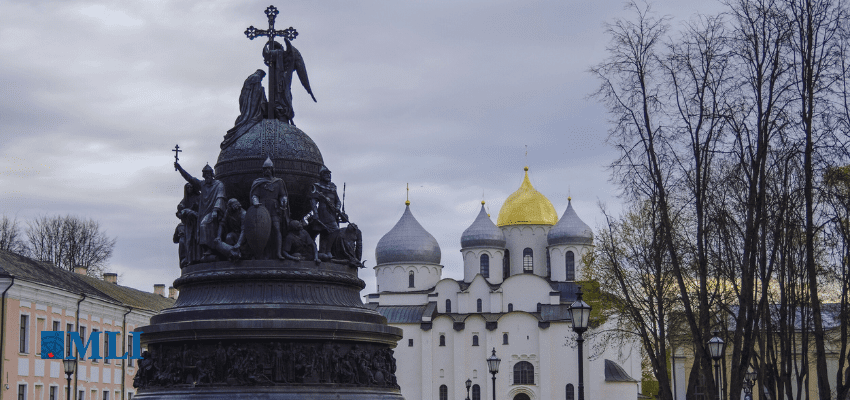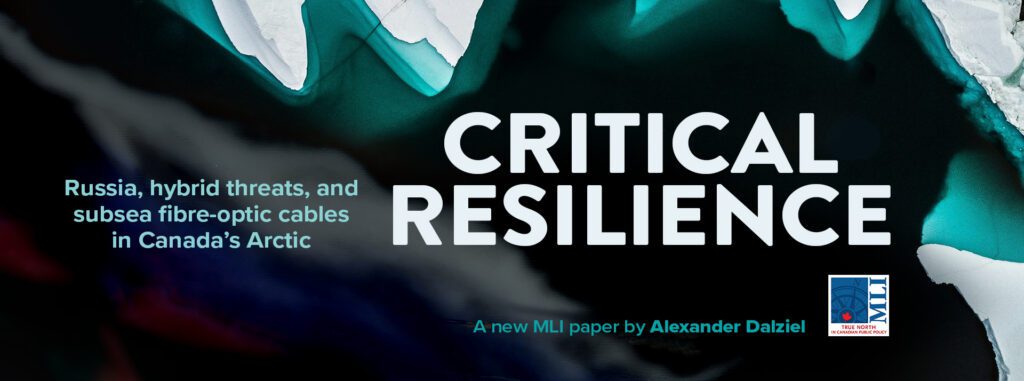By Stephen Nagy, July 17, 2024
The only people taking the expansionist ambitions of Vladimir Putin seriously enough are those living closest to Russia. The complacency of most of the rest of the democratic world is a dangerous blind spot.
Words like neo-imperialism, cultural genocide, and identity erasure were used by Central and Eastern European scholars and analysts at a recent conference in Warsaw to convey the magnitude, brutality, and seriousness of the Russia invasion of Ukraine.
This refreshing clarity needs to be extended into North America, Western Europe, Southeast Asia, South Asia, and the so-called Global South.
Europe in the crosshairs
If Russia defeats and absorbs Ukraine, then its next targets could be Belarus, Poland, Moldova, Georgia, Ukraine, and Romania, and potentially the Baltic states of Estonia, Lithuania, and Latvia. After that, Russia could threaten Finland, Sweden, and Norway, the south-central states of Kazakhstan and more. In effect, a reconstituted Soviet Union is the end goal of Putin’s neo-imperialistic endeavour.
Indeed, all states in Russia’s periphery, save China, North Korea, and perhaps Mongolia, due to its geographic proximity to China, should also be wary of Putin’s plans.
“Above all, we should acknowledge that the collapse of the Soviet Union was a major geopolitical disaster of the century,” Putin noted in his 2005 annual address to the Federal Assembly of the Russian Federation. “As for the Russian nation, it became a genuine drama. Tens of millions of our co-citizens and compatriots found themselves outside Russian territory. Moreover, the epidemic of disintegration infected Russia itself.”
Implications for India
What does Russian neo-imperialism mean? Are there implications for members of the Global South, who often argue that Russia’s war with Ukraine has nothing to do with them and their interests?
In the developing world, India is a leading voice among those who refuse to condemn Russia’s invasion of Ukraine.
“India’s position on the Ukraine conflict has been steadfast and consistent. We have expressed deep concern at the worsening situation and called for an immediate cessation of violence and end to all hostilities,” said External Affairs Minister Subrahmanyam Jaishankar.
The contradiction is that India has border disputes with China and challenges with Pakistan and Bangladesh. If China moves troops into the Himalayan Plateau, how would New Delhi want the world to respond?
Russia’s aggression inspires China
Similarly, in Southeast Asia and especially the South China Sea, there are many territorial disputes. China has employed grey zone tactics, construction tactics, and coercive diplomacy to assert its sovereignty claims by impinging on Vietnam, the Philippines, and at times Indonesia and Malaysia.
If China is successful in the Spratly Islands or other areas of the South China Sea, will Southeast Asian countries roll over and play dead or will they demand that the United States and like-minded countries with shared interests enforce international law and sanction China?
What if Taiwan is annexed by mainland China through force or some sort of blockade? How should the international community respond?
For the Global South, this is merely a battle between two parts of China, with most countries siding with Beijing. This is in part related to Beijing’s demands that countries who establish strategic partnerships or development initiatives such as the Belt Road Initiative include a statement supporting Beijing’s reunification position.
In reality, cross-strait relations are between two political ideas and two important political entities that greatly impact the peace, stability, and prosperity of the Global South.
Taiwan is the third-largest development investor in Southeast Asia, behind China and Japan. A conflict will disrupt trade, investment, and regional economies.
Russian neo-imperialism and the rule of law
What happens to Ukraine matters not just for Ukraine or Europe and other Western countries – it matters for all countries interested in an international order based on the rule of law. If Putin’s Russia is successful, it will demonstrate that power, not law, diplomacy, and international institutions are the currency of international affairs today, tomorrow, and long into the future.
In other words, a Machiavellian might-is-right-approach to foreign affairs would dominate. In this world, the strong do what they want and the small or weak do what they must to survive. It’s a scenario that would see international borders rewritten by force, and the identities and cultures of some nations extinguished.
This has implications for the Middle East, where borders are still fragile, for Africa, where ethnic tensions still exist and cross-border conflict is not uncommon, and for Southeast and South Asia.
It’s important to recognize that Russia is not simply trying to expand its borders by invading Ukraine. It is trying to erase the very concept of Ukraine, and by extension, Ukrainians. Extinguishing a country’s identity, culture, and language are crimes against humanity. It beckons back to Nazi Germany’s efforts to extinguish the Jewish people during the Holocaust.
Western nations and allies need to rearm
Russia’s new imperialistic activities have also laid bare the mistaken notion, held since the end of the Cold War, that we’ve entered a period of international relations in which international law can be enforced. It has been crystal clear in many capitals that having a military-industrial complex to push back against aggressive imperialist states is a necessity, as Russia, China, North Korea, and Iran aim to create a multipolar world in which power, not rule of law and diplomacy, is the core tool of how international order should function.
In the case of the Indo-Pacific, the European Union, Canada, Japan, and other states are behind the curve in facing security challenges.
Prime Minister Kishida Fumio of Japan has said that today’s Ukraine could be tomorrow’s East Asia. There is a lack of defensive systems within the region that can be delivered to hotspots, let alone dealing with multiple contingencies such as a threat to Taiwan emerging at the same time as flare-ups on the Korean Peninsula, the Himalayan Plateau, and the South China Sea.
To illustrate, if China attacked Taiwan, would Taiwan have the deterrence capabilities to prevent an amphibious landing? How long could it last if China launched a sustained blockade? Where would the weapon systems and other deterrence capabilities come from to defend the island?
The same questions could be asked for the Philippines, an archipelago of more than 5,000 islands, which would find itself at the centre of conflicts over both Taiwan and the South China Sea.
Russian and Chinese aggression has obliterated the post-Cold War rationale for not maintaining a robust military. It has also proven wrong critics who complain that the United States focuses too much on hard military power as opposed to diplomacy. Without American military might – as well as the Biden administration’s adept coordination of international support – Ukraine might have already fallen to Russia.
Canada’s free ride on defence must end
Europe, Japan, Australia, and many other countries on the forefront of challenges by authoritarian states will need to become more American in how they think about security and the investment in defence. This will require a fundamental reset in identity and foreign policy focus that sees international order through the lens of power.
Rising neo-imperialism will force even Canada to act. Canada’s Arctic is a geo-political hotspot as Russia expands in the region and increases co-operation with China. The threat will only grow as climate change opens sea lanes in the Northwest Passage.
Lastly, Russia and China have increased co-ordination and co-operation with North Korea. This includes the development and proliferation of weapons of mass destruction, and munitions for the Russian front to fight Ukrainians.
We have entered a brave new world of thinking about our military footprint, the threat from authoritarian regimes, and what Akiya Hiroyuki of the Nikkei newspaper describes the “connectivity of war.”
The Global South has a stake in Ukraine winning the war against Russian neo-imperialism. It also has a stake in preventing China from annexing Taiwan through force, which would seriously damage regional and world economies.
Restoring the rule of law
Other authoritarian states and dissatisfied actors are watching and learning from Russia’s use of force to try to reshape European borders. No doubt these lessons will be applied at borders around the world.
Russia’s invasion of Ukraine, rather than an exception, represents an opportunity to coalesce around a common understanding of an international order that refuses to accept neo-imperialist efforts to extinguish cultures and languages through force.
Yes, it’s important for leading Global North countries to be consistent in their application of international law. The conflict between Israel and the Palestinian territories is a good example. The chaos and brutality that was unleashed by Hamas on October 7, 2023, should be fought, and never allowed to be repeated. Israelis have a right to attempt to eliminate Hamas. At the same time, Israel must also follow international law and avoid indiscriminately harming civilians in the Gaza Strip.
The United States and other like-minded countries need to work hard to demonstrate their consistency, while at the same time recognize the insecurity that Israel faces with aggressive terrorist organizations, such as Hamas and Hezbollah and, of course, their benefactor, Iran.
Consistency by the Global North on these issues could contribute to more buy-in from the Global South on issues such as pushing back against Russia’s invasion of Ukraine.
An international order based on rule of law is not only an order that benefits Western countries. It’s a system that ensures small, medium, and great powers are obliged to follow an agreed-upon international law about where borders are, how to behave with neighbours, and the consequences if you do not follow international law.
This is not a Western or Eastern value. This is not a Global North value or Global South value. This is a value that all states have a deep-seated national interest in.
Stephen R. Nagy is a professor at the International Christian University in Tokyo, a senior fellow at the Macdonald-Laurier Institute, a senior fellow at the Asia Pacific Foundation of Canada and a visiting fellow with the Japan Institute for International Affairs.







